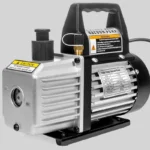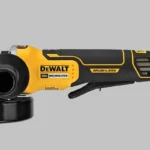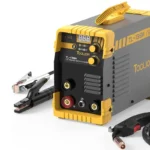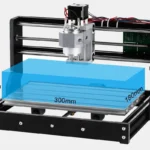Power tools have revolutionized the way we build, repair, and maintain our environments, merging power with precision in ways that were unimaginable a century ago. This post will explore the evolution of these indispensable tools from their rudimentary beginnings to the sophisticated devices we use today.
Early Innovations
The journey of power tools began in the early 20th century when the need for faster and more efficient manufacturing processes became evident. The introduction of the electric motor was a pivotal moment in this journey. Electric motors replaced manual labor with mechanized power, setting the stage for the first power tools.
Black & Decker pioneered the power tools industry by inventing the portable electric drill in 1916. This tool was not only a breakthrough in terms of portability but also in functionality, opening up new possibilities for construction and home improvement. Another significant advancement was the creation of the electric circular saw by Skilsaw in the 1920s, which became a staple in woodworking and construction.
Post-War Boom and Innovation
Following World War II, the demand for building and reconstruction led to a boom in the power tools sector. This era saw significant innovation, particularly in the development of more compact and efficient tools. Brands like Makita and DeWALT began to emerge as leaders, pushing the boundaries of tool performance and design.
During the post-war period, improvements in electric motor efficiency and the introduction of affordable, portable power tools democratized access to power tools, allowing professional contractors and average consumers alike to perform tasks more efficiently than ever before.
Technological Advancements
As technology advanced, so did the features of power tools. Two of the most significant advancements were the development of battery technology and brushless motors.
Battery Innovations
The shift from corded to cordless tools marked a significant turning point in the industry. Initially powered by nickel-cadmium (NiCd) batteries, cordless tools later adopted lithium-ion technology, which offered longer life, faster charging, and less weight. These batteries have now become standard due to their efficiency and convenience.
Brushless Motors
Brushless motor technology was another leap forward, offering more power, efficiency, and longevity than traditional brushed motors. These motors optimize battery usage and extend the life of the tool by eliminating the friction and wear caused by brushes.
Modern Power Tools
Today’s power tools are not only powerful and efficient but also smarter and safer to use. Ergonomic designs make tools easier and more comfortable to use, while integrated safety features, such as automatic shut-offs and improved guards, help prevent accidents.
The integration of smart technology into power tools, such as Bluetooth connectivity and advanced diagnostics, has further enhanced their functionality. These tools can now communicate with smartphones and computers, allowing users to track usage, receive maintenance reminders, and even control tool settings remotely.
Leading Brands and Their Contributions
Brands like Makita, DeWALT, and Bosch have been at the forefront of power tool technology. Each has contributed innovative products that have set industry standards. For example, Makita’s advancements in battery technology have allowed for more compact yet powerful cordless tools, while DeWALT’s FlexVolt technology offers versatility in switching voltages between tools.
The history of power tools is a story of continuous improvement and innovation. From the early electric drills to today’s smart tools, the evolution of power tools reflects broader technological advancements. As we look to the future, the power tools industry is set to deliver even more sophisticated solutions, driving efficiency and effectiveness to new heights. Whether for professional construction or DIY projects at home, power tools will remain essential in building the world around us.

Matthew Dowell
Matthew, a seasoned builder from a family of craftsmen, leads Tools Trove. His passion for tools and decades of hands-on experience fuel his commitment to providing expert reviews and insightful content. Whether you’re a pro or a DIY enthusiast, Matthew’s guidance ensures informed decisions in the world of tools.




